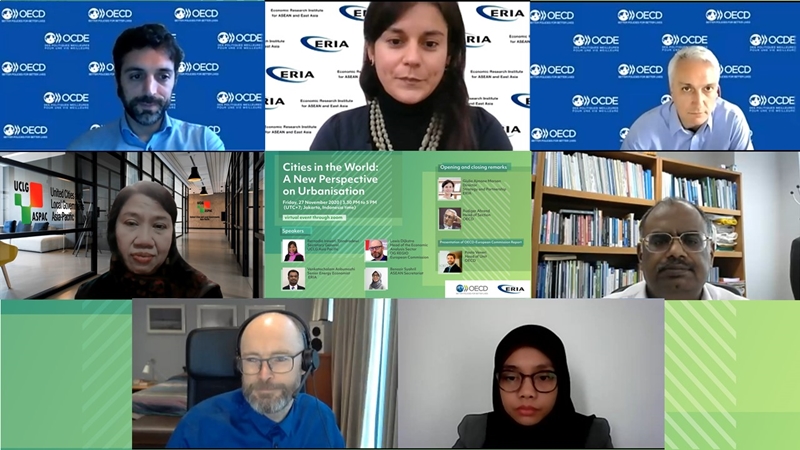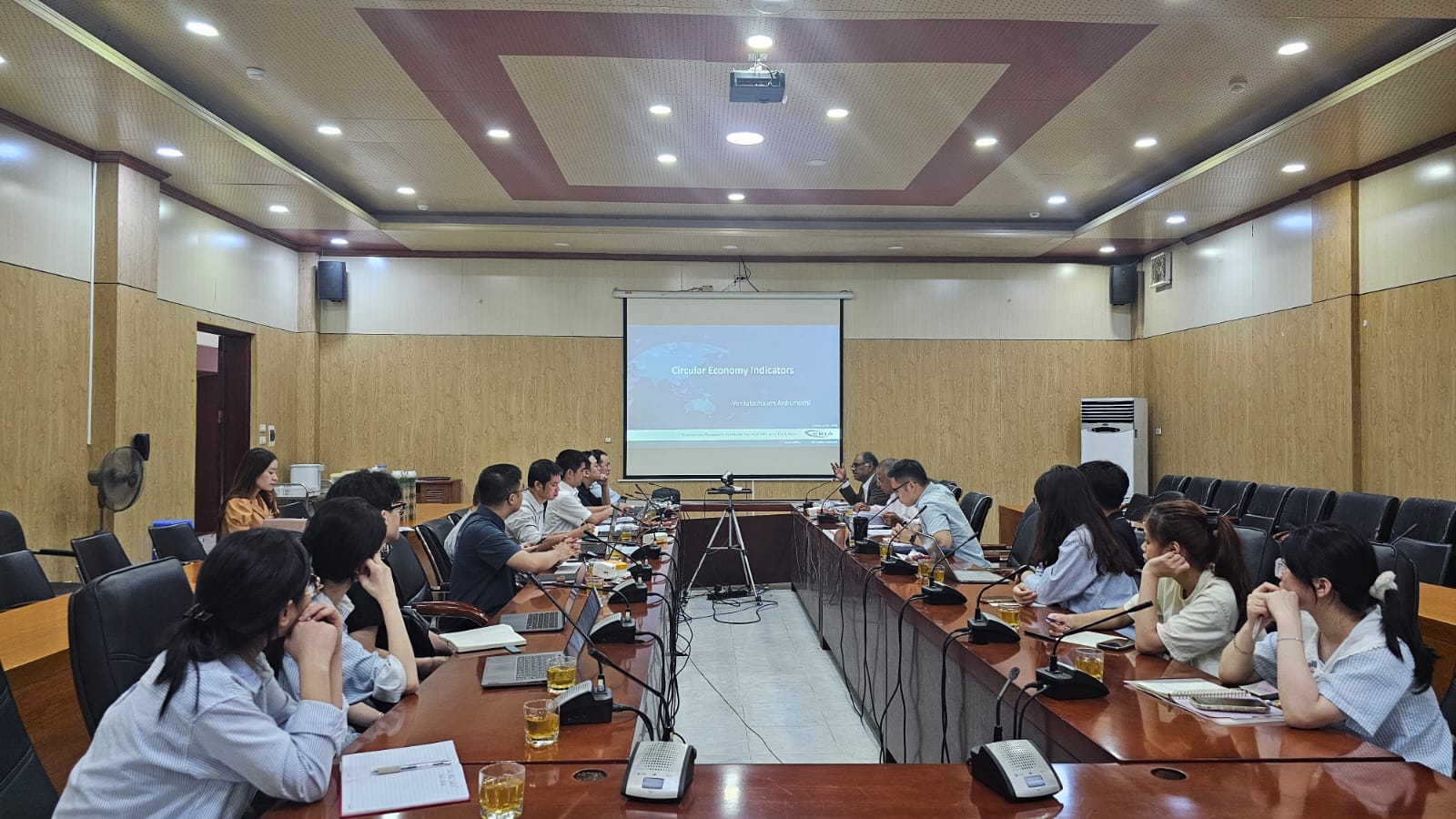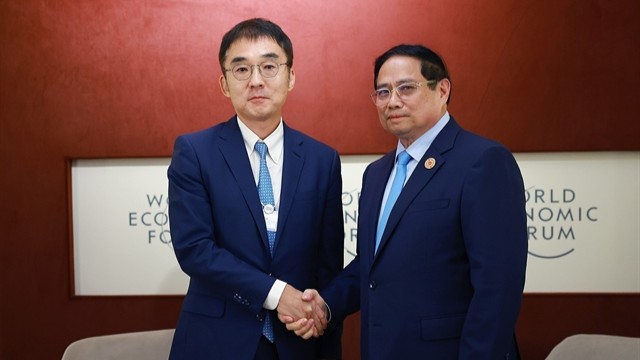ERIA and the OECD Co-host Webinar on Urban Trends Across Asia
Date:
27 November 2020Category:
NewsShare Article:
Print Article:
Jakarta, 27 November: ERIA, together with the Organization of Economic Cooperation and Development (OECD), organized the webinar ‘Cities in the World: A New Perspective on Urbanisation’. More than 100 participants joined the webinar.
Dr Ajmone Marsan, ERIA Director for Strategy and Partnership, opened the webinar by commenting on how urbanization is a mega-trend affecting the way people live, work and interact. Over the past 40 years, the global population has almost doubled. As a result, the size of urban agglomerations has also grown rapidly. Today, cities are home to almost half of the global population and this share is projected to reach 55% by 2050. She also highlighted how Asia is an important driver of urbanisation globally.
Dr Paolo Veneri, Head of Unit, OECD, presented the recently released OECD-European Commission report ‘Cities in the World’ and described recent trends globally and in Asia. He also presented the new statistical definition of cities, developed by the OECD and the European Commission, and recently adopted by the Statistical Commission of the United Nation in March 2020.
Following Dr Veneri’s presentation, four panellists discussed various issues related to the quality of life in cities; local governance; public transport; sustainability issues and the green transition; and the digital transformation. The panellists were: Dr Bernadia Irawati Tjandradewi, Secretary-General, United Cities and Local Governments Asia Pacific; Dr Lewis Dijkstra, Head of the Economic Analysis Sector of the Directorate-General for Regional and Urban Policy, European Commission; Dr Venkatachalam Anbumozhi, Senior Economist ERIA; Ms Benazir Syahril, Project Officer for ASEAN Connectivity at the ASEAN Secretariat. Dr Anbumozhi discussed issues related to this area of research at ERIA: connectivity, cities and the 4th industrial revolution, and the circular economy as well as smart cities.
Dr Rudiger Ahrend, Head of the Economic Analysis, Statistics and Multi-level Governance Section in the OECD Centre for Entrepreneurship, SMEs, Regions and Cities, delivered concluding remarks.
Related Publications
Formulation of Temburong Eco Town Master Plan in Brunei Darussalam
Industry 4.0: Empowering ASEAN for the Circular Economy
ASEAN Vision 2040: Towards a Bolder and Stronger ASEAN Community








